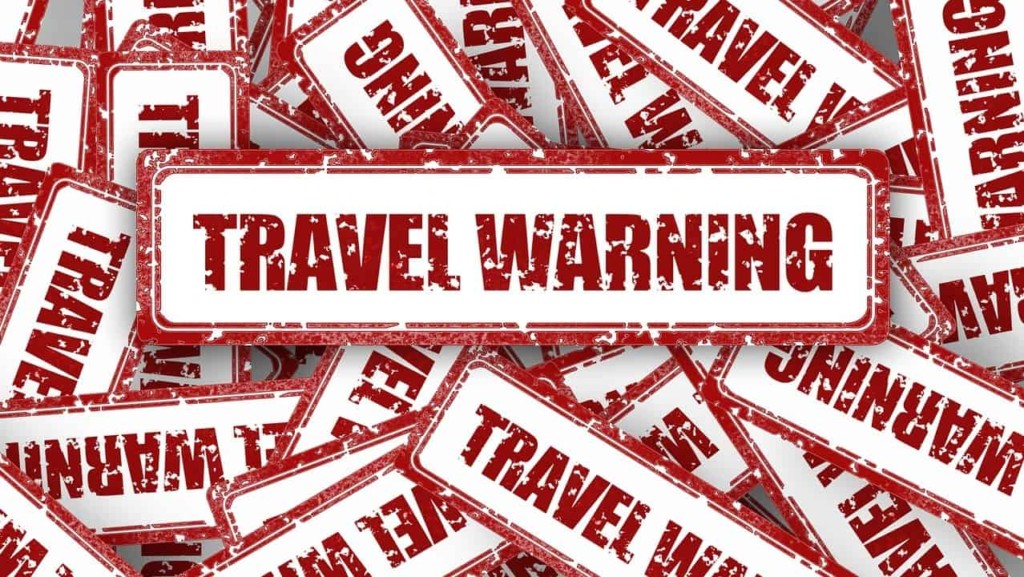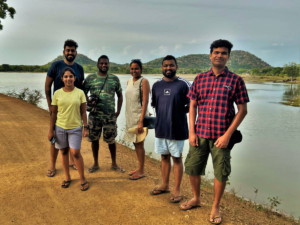Panic! The effect of travel advisories on tourism after terrorism

Sri Lanka-based villa agent Jack Eden calls for the travel & tourism industry to work proactively to dampen the devastating effects of travel advisories that exacerbate the human and economic damage of terrorism.
I wish to share my views — and listen to those of my peers — in relation to what role travel advisories play in the fight against terrorism. Used as they have been for travel to Sri Lanka recently, are they the right response? What role can we in the travel & tourism industry play?
Let me start with a moment of reflection and remember those who have been so cruelly killed in recent times by terrorism. Journeying through this life seeking to harm no one, innocent people have been murdered at work, at play, at prayer, or at meals. None deserved it and let us never forget them.
According to ourworldindata.org some 13,000 people were killed by acts of terror in 2010; in 2017 this number grew to a frightening 26,445 (6,476 and 6,092 in Iraq and Afghanistan respectively). However, when stating this figure the data editors used the adjective ‘only’ — “terrorism only killed 13,000 in 2010”. This is not to be cavalier but to put the number into context. According to Oxfam some 8 million children under 5 died in 2011; 6 million people died from tobacco; 2.8 million from obesity; 782,000 from suicide, and so on.
From the fear spread by some politicians and media we could be forgiven for thinking terrorism was the highest cause of premature death, rather than ranked 15th (2010). But terrorism fatalities are on the rise and foreign governments’ reactions to attacks, in the form of travel advisories, have a direct impact on the livelihoods of many more people than those killed.
Tragically, 258 people were killed during the April 21, 2019 attacks in Sri Lanka.
Most were Sri Lankan. I make this distinction because, during the 30-year war against the Liberation Tigers of Tamil Eelam (LTTE), one of the deadliest terrorist groups at that time, more than 100,000 children were killed; concern over human rights abuses was raised by the UK government at the highest levels; the editor of the Sunday Leader, Lasantha Wickreatunge, was assassinated by gunmen in his car; there were suicide bombers; and civilians were targeted across the island. Throughout all this time foreign government travel advice was simply to avoid certain areas and public gatherings.
On April 21, among the 258 people killed were 46 foreign nationals. Because of this — and the threat that more attacks might occur, as well as a confused response by the Sri Lankan government — all countries urged all their citizens to leave and not come back until told it was safe. There followed a stampede to leave.
It is an emerging depraved tactic of terrorists to explode two bombs – the second as people seek escape through various exits. Advising tourists to leave Sri Lanka post the April 21 attacks caused mayhem at the airport as anxious and panicked tourists crammed in, putting huge pressure on the security services. The experience must have been harrowing and these people will probably never return.
The French government’s advice on what to do if caught in a terrorist situation is to escape, hide, and be alert, but in ‘escape’ they say first ‘observe’ — look around and see where the threat is. Surely, after a terrorist incident, governments should be advising people to stay calm, stay low, remain alert, and know of a place to hide in the event it becomes necessary. Is it wise to spread fear and panic by telling all to blindly rush for the airport, overcrowding a dangerously confined space?
The exodus of tourists after the April 21 attacks caused hotel occupancy to plummet by 95% overnight. And forward bookings, going as far ahead as April 2020, have been cancelled. The economic effect is catastrophic and will be long felt.
The World Travel & Tourism Council (WTTC) determined that 404,000 people were directly employed by Sri Lanka’s travel & tourism industry in 2017 – 5.1% of the labour force – rising to 419,500 in 2018. Many more rely on the industry indirectly so the significant contribution to Sri Lanka’s economy and social development cannot be underestimated.
Many Sri Lankan hotel staff are now working shifts and accepting lower pay. Those recently employed and still on probation have been laid off. Longer term workers will be next. Small businesses, who for the first time tasted opportunity, have shut. Farmers have left land untended, fishermen don’t fish, tuk tuk drivers sit idle, tour guides have gone home, and surf instructors watch the empty waves ebb and flow. The brain drain from Sri Lanka, which had recently begun to reverse, is in danger of resuming as the ambitious and talented see opportunity dashed at home.
The threat of young men, intoxicated with despair, falling victim to a hardline nationalist agenda, is very real. Destabilising leaders, whose voices were drowned out by hope and opportunity, may surface once more to cast their poisonous rhetoric. Those who were waiters and bar tenders may turn to serve only misplaced vengeful violence.
This deep, widespread, and painful suffering is because of the ‘stay away’ message of travel advisories.
Some have chided me for being emotional but I think it important that everyone is aware of what is happening. Others have suggested that the issue is trust, or the lack of it, in the Sri Lankan government and that foreign governments, with a duty to protect their citizens, are only acting as they should. But whilst we are told to flee to save ourselves, those who the day before served and cared for us with natural and generous hospitality, are thrown into a potentially far more dangerous situation.
Is this what we, as global citizens in a global fight, really want to do? Is it what we should do? If the situation worsens, as it might, is it not handing the terrorists exactly what they want?
As I write this, China, India, Germany, Sweden, and Switzerland have all relaxed their advisory to ‘be cautious and vigilant’, i.e. the same advice anyone would give when traveling anywhere. It is reasonable to expect other countries will soon follow suit.
I am delighted these countries are easing back, but the fact they do it so soon surely raises the question of whether it was necessary in the first place. Hindsight is a wonderful thing but it is worth asking whether all this damage to livelihoods and risk to the stability of the country could have been avoided. If the cause of the advisories really was a systematic failure in government, has anything really changed?
Globally, recovery times after a terrorist incident are gradually falling. It took New York hotels 34 months to recover after 9/11, Madrid 12 months, and London seven months. But a country like Sri Lanka, with a relatively immature political environment and a relatively new awareness of its tourism potential, may take much longer.
We know this is not the last attack of this kind. Terrorist incidents like this breed other terrorist incidents. It is not a matter of IF, but when and where another attack occurs?
Tourism – ‘the industry of peace’ — brings huge economic and social benefits, but, as we are seeing in Sri Lanka, it is volatile. It can turn on knife’s edge, cause disproportionate suffering to a large percentage of the population, and have a deep long-lasting social impact.
As an industry we need to be far more proactive to protect not only our customers but also our staff and their dependents who rely on incomes for their very existence. This will mean being more politically active to ensure countries have concise protocols and contingency programs in place, and to do their best to ensure the safety of travellers.
We need to share our experiences and resources, notably in public relations, to ensure that affected governments are equipped to give fast and accurate responses. We need to help countries demonstrate that they are prepared to communicate with other countries and to share intelligence and information about what is going on immediately following an attack.
In this way foreign governments might be more informed, which may allow them to wait before raising a countrywide travel ban that unleashes devastating effects like the ones now faced by Sri Lanka.
The tourism industry in Sri Lanka has formed an alliance called Love Sri Lanka and whilst it is still early days it is hoped that this will grow to contribute proactively. We owe it to all those who are directly and indirectly affected to do our best.
Featured image: Travel warning notice by Gerd Altmann via Pixabay.
About the author

Jack Eden and his family moved to Sri Lanka in 1999 and established Eden Villas.





